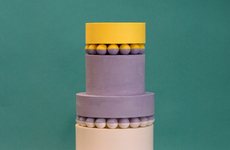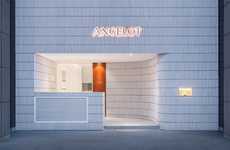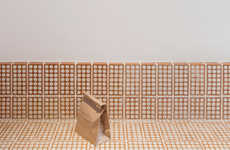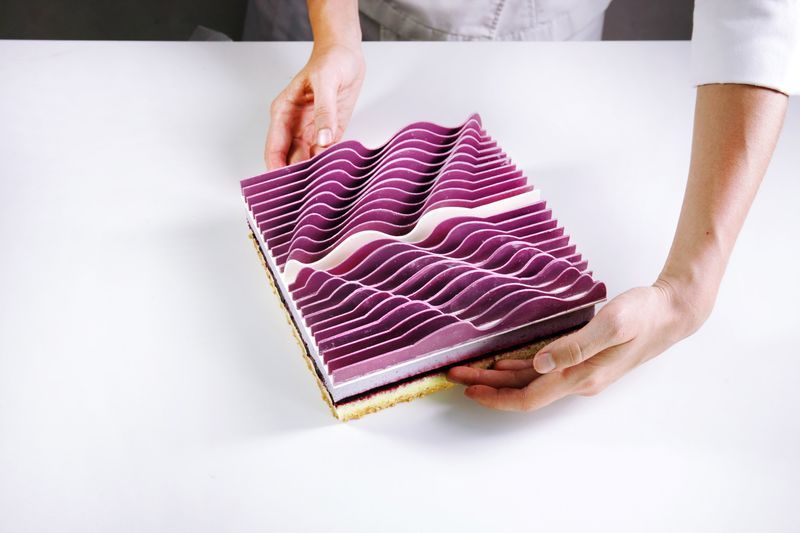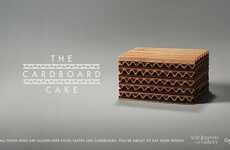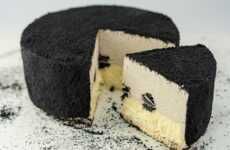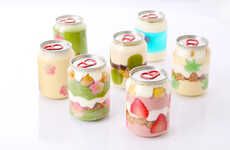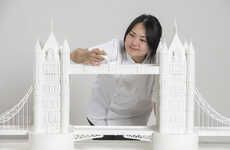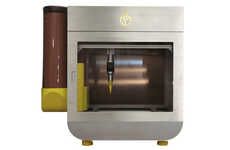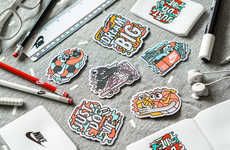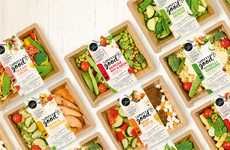
'Kinetic Tarts' Transform Architectural Concepts into Cakes
Cakes are often discussed with a certain architectural bent -- they have tiers and layers just like buildings -- but the Kinetic Tarts bring that discussion to a new level. The partnership between artist Jose Margulis and architect cum pastry chef Dinara Kasko consists of cake versions of Margulis' structural artworks, showing the constructive qualities of the pieces in a totally new and creative medium.
The Kinetic Tarts are made from a combination of typical cake ingredients in the base layers and thin, specially designed sheets of chocolate on top. Those chocolate pieces were cut with an industrial machine also used on architectural modelling. The silicon molds for the chocolate are made using 3D-imaging software from Autodesk called 3ds Max, another program used frequently by artists and architects when building their models.
The Kinetic Tarts are made from a combination of typical cake ingredients in the base layers and thin, specially designed sheets of chocolate on top. Those chocolate pieces were cut with an industrial machine also used on architectural modelling. The silicon molds for the chocolate are made using 3D-imaging software from Autodesk called 3ds Max, another program used frequently by artists and architects when building their models.
Trend Themes
1. Architectural-inspired Cakes - There is an opportunity for disruptive innovation in the baking industry by creating cake designs that draw inspiration from architectural concepts.
2. Integration of Industrial Techniques in Pastry - Pastry chefs can explore disruptive innovation by incorporating industrial techniques, such as cutting chocolate with architectural modeling machines, into their creations.
3. Cross-disciplinary Collaboration in Culinary Arts - Collaborations between artists, architects, and pastry chefs present a disruptive innovation opportunity to create unique and visually stunning culinary works of art.
Industry Implications
1. Baking and Culinary Arts - There is an opportunity for disruptive innovation within the baking and culinary arts industry by merging architectural concepts with pastry design.
2. Industrial Manufacturing - Industrial modeling techniques used in architectural design can be adapted for the manufacturing of specialized tools and molds in the pastry industry, allowing for disruptive innovation.
3. 3D Imaging Software - The use of 3D imaging software, such as Autodesk's 3ds Max, in the creation of silicone molds presents a disruptive innovation opportunity for the software industry.
6.5
Score
Popularity
Activity
Freshness


